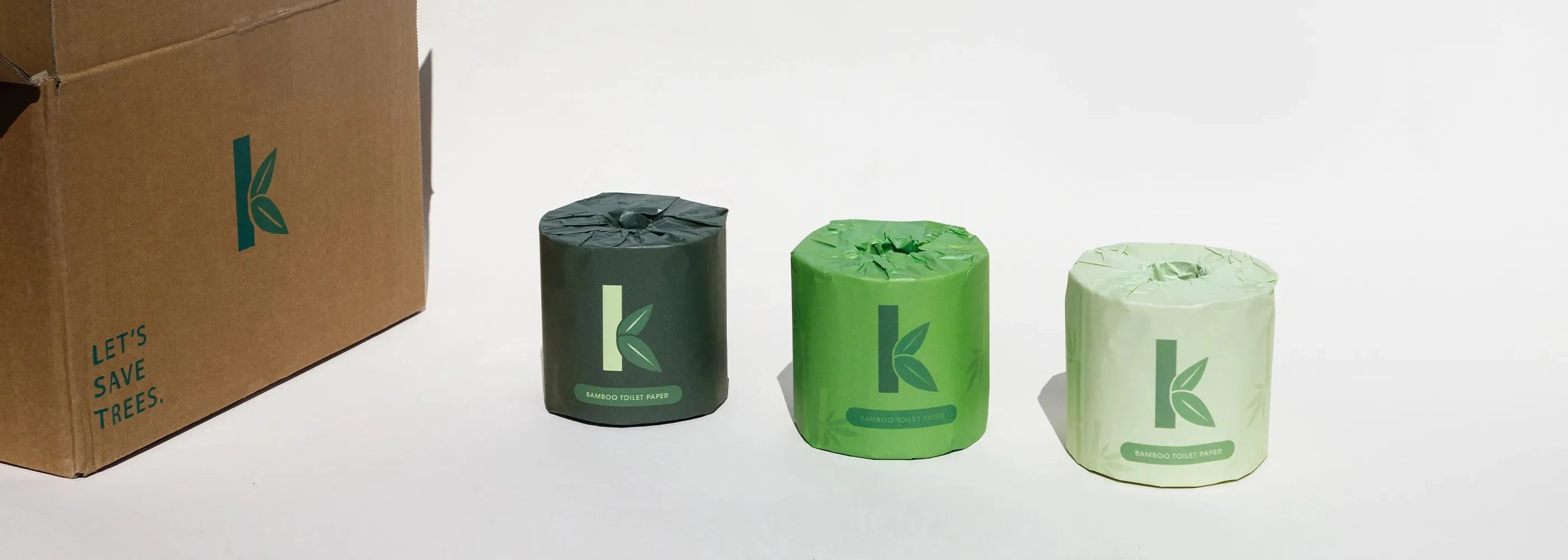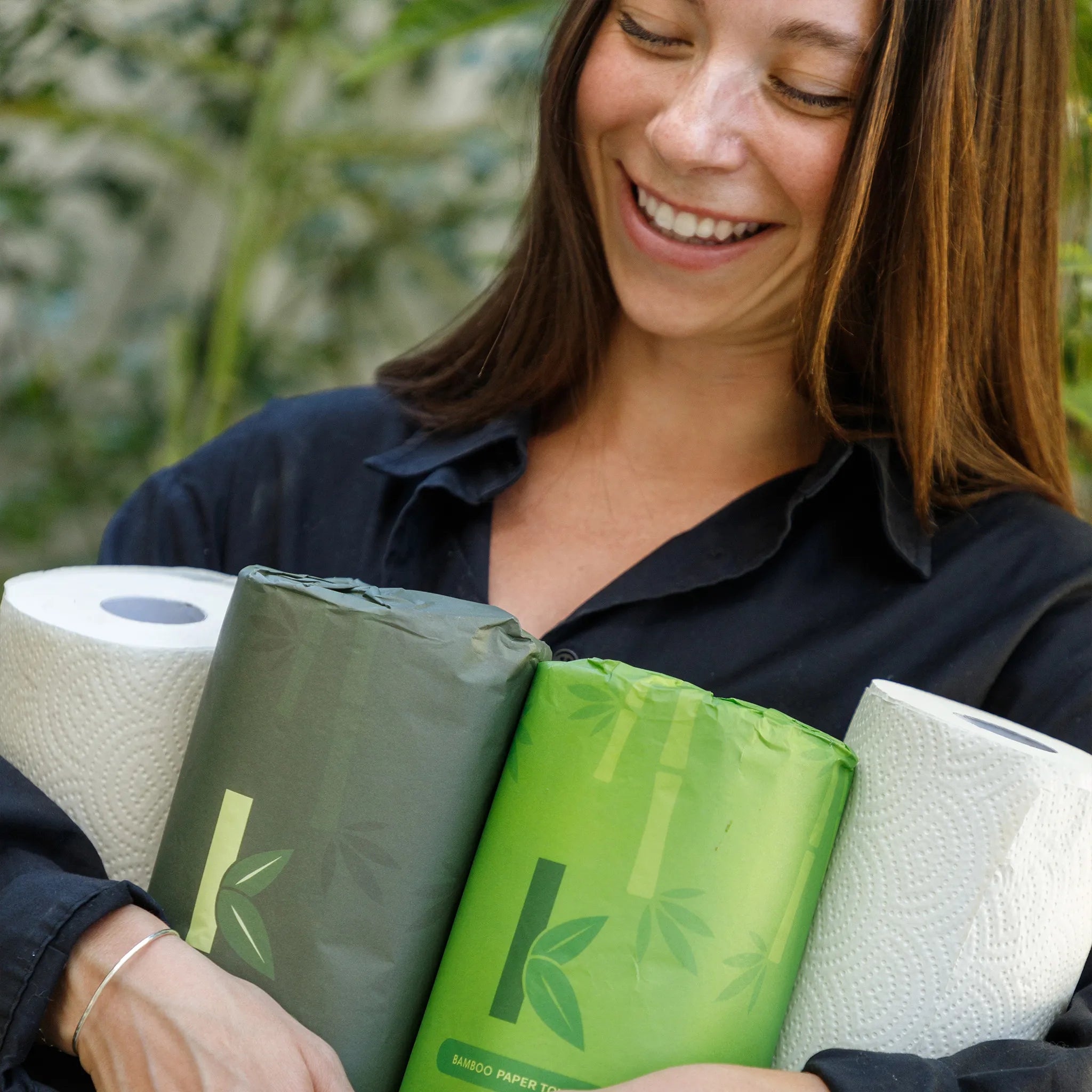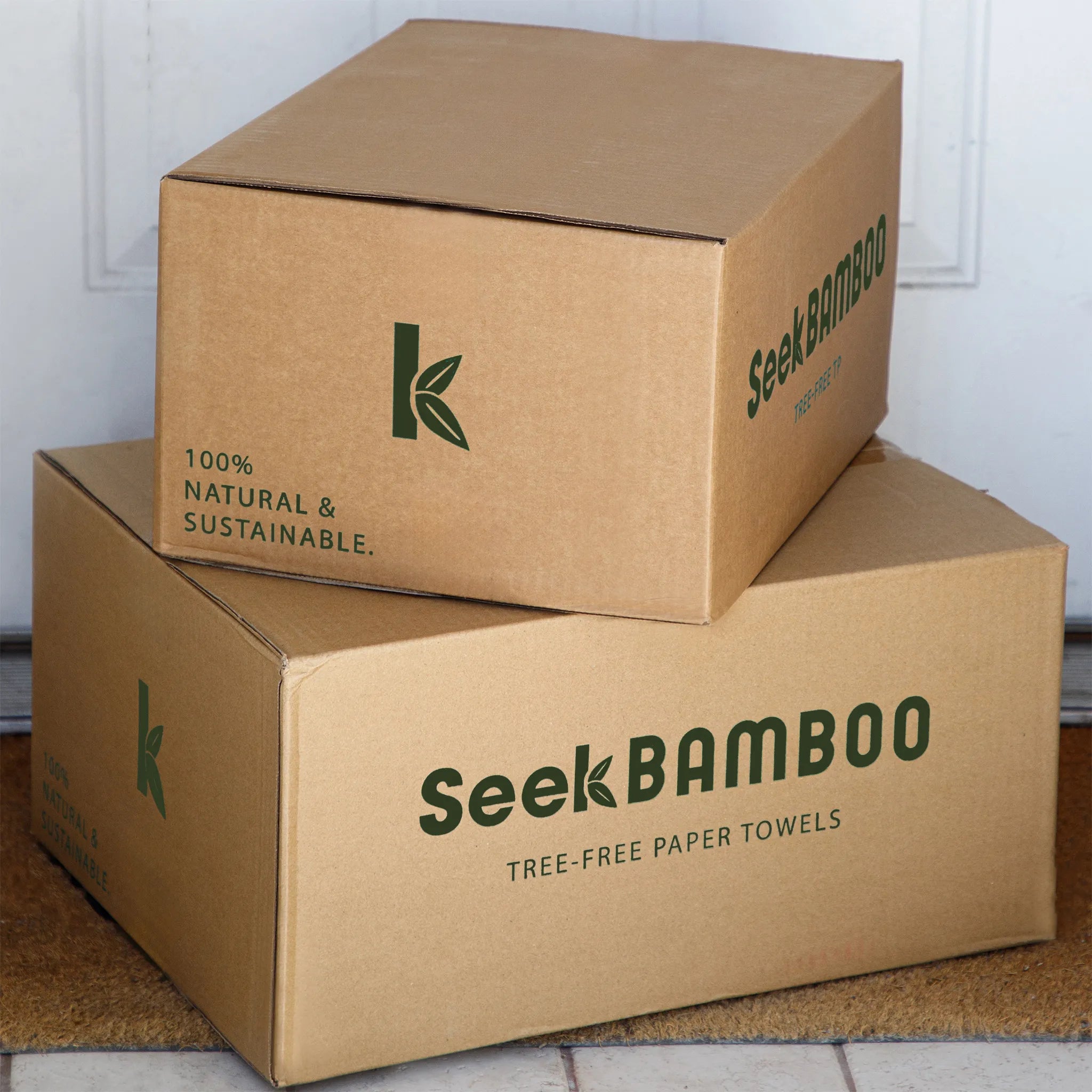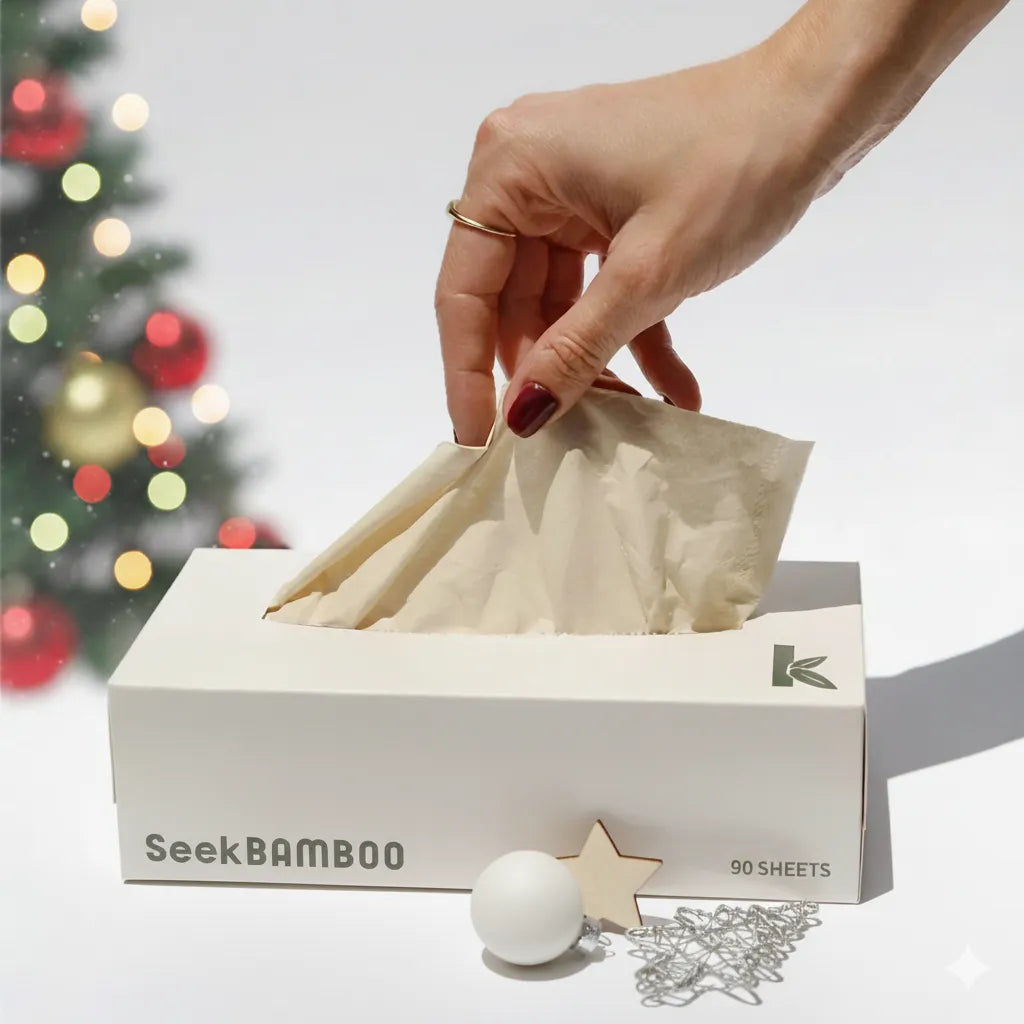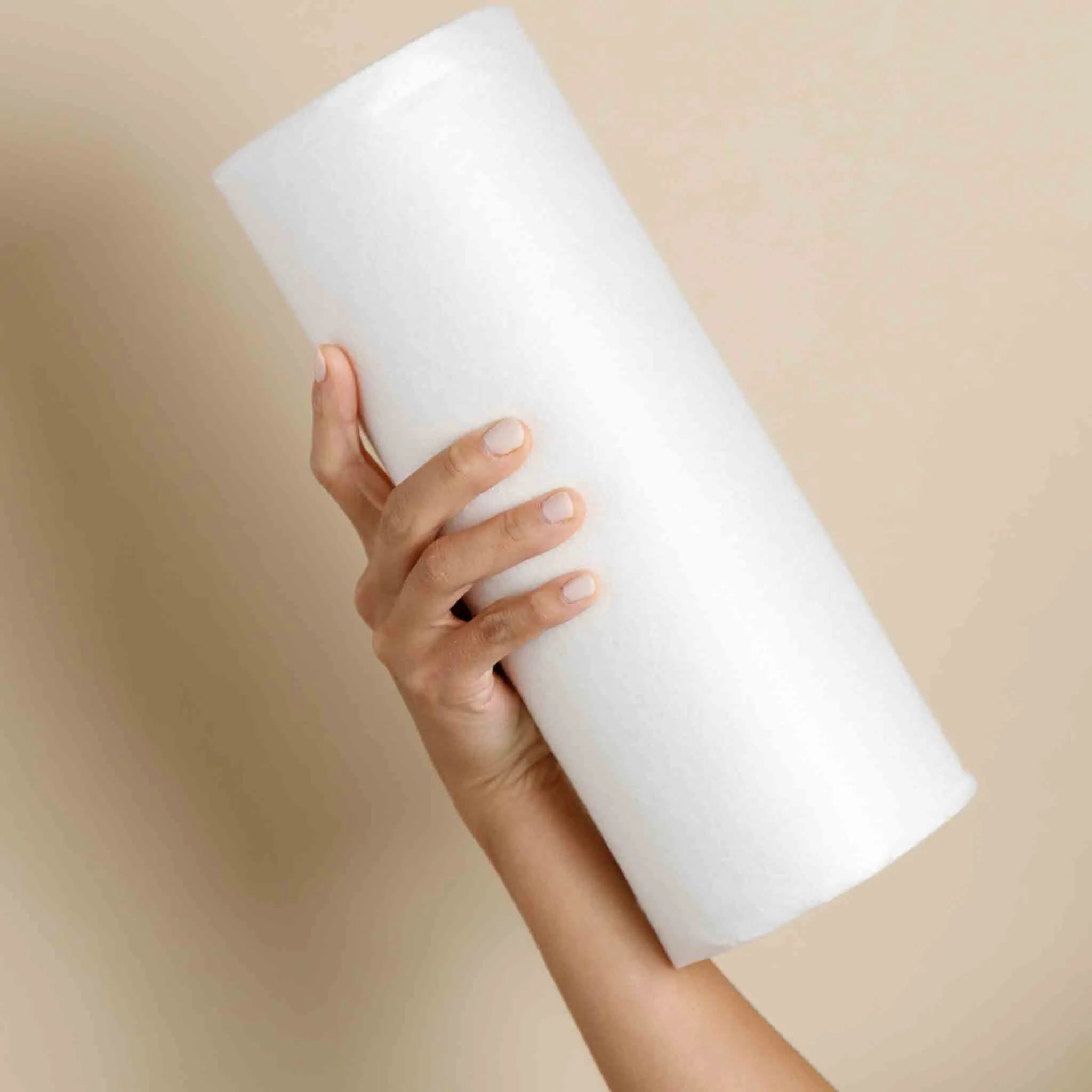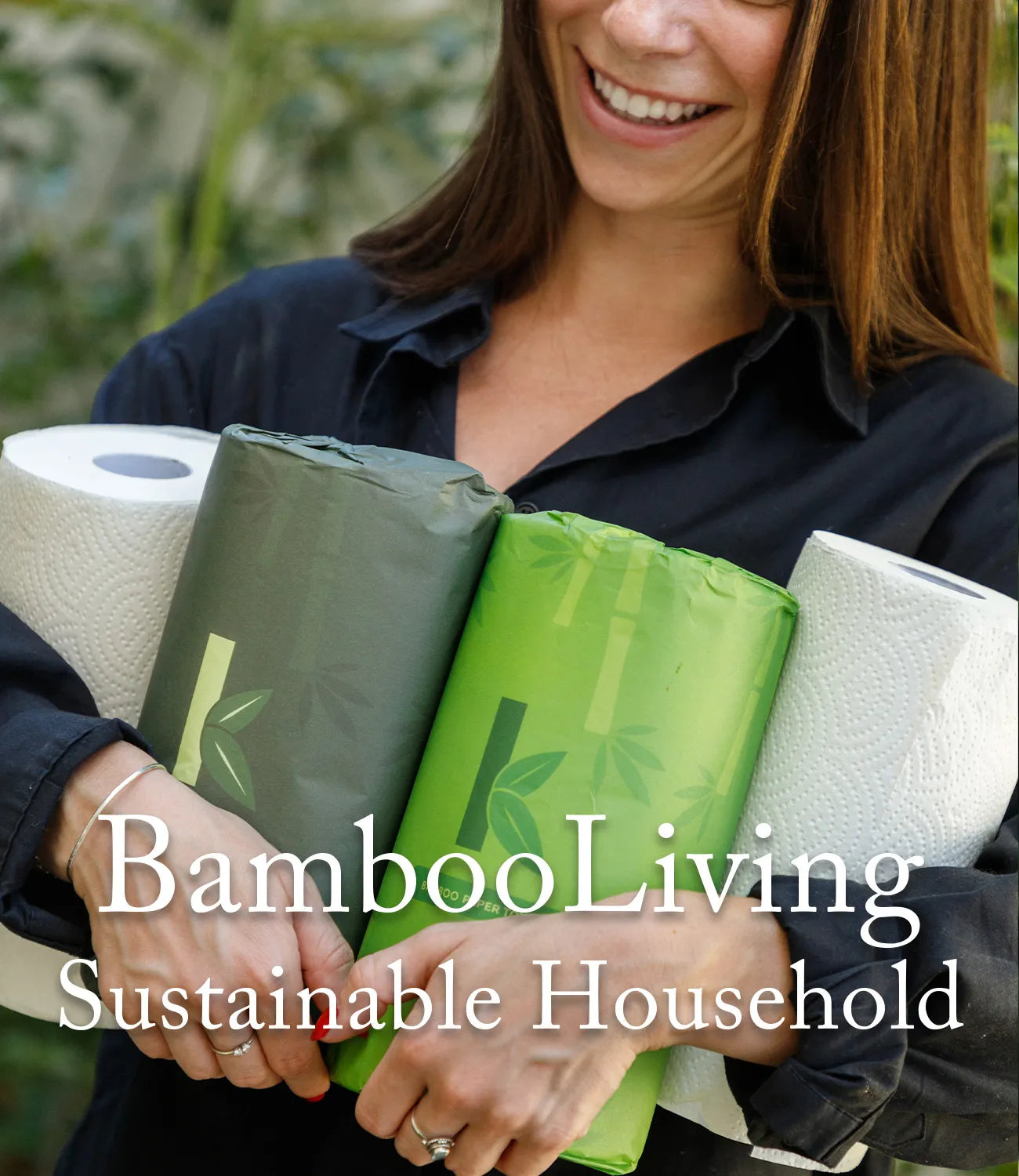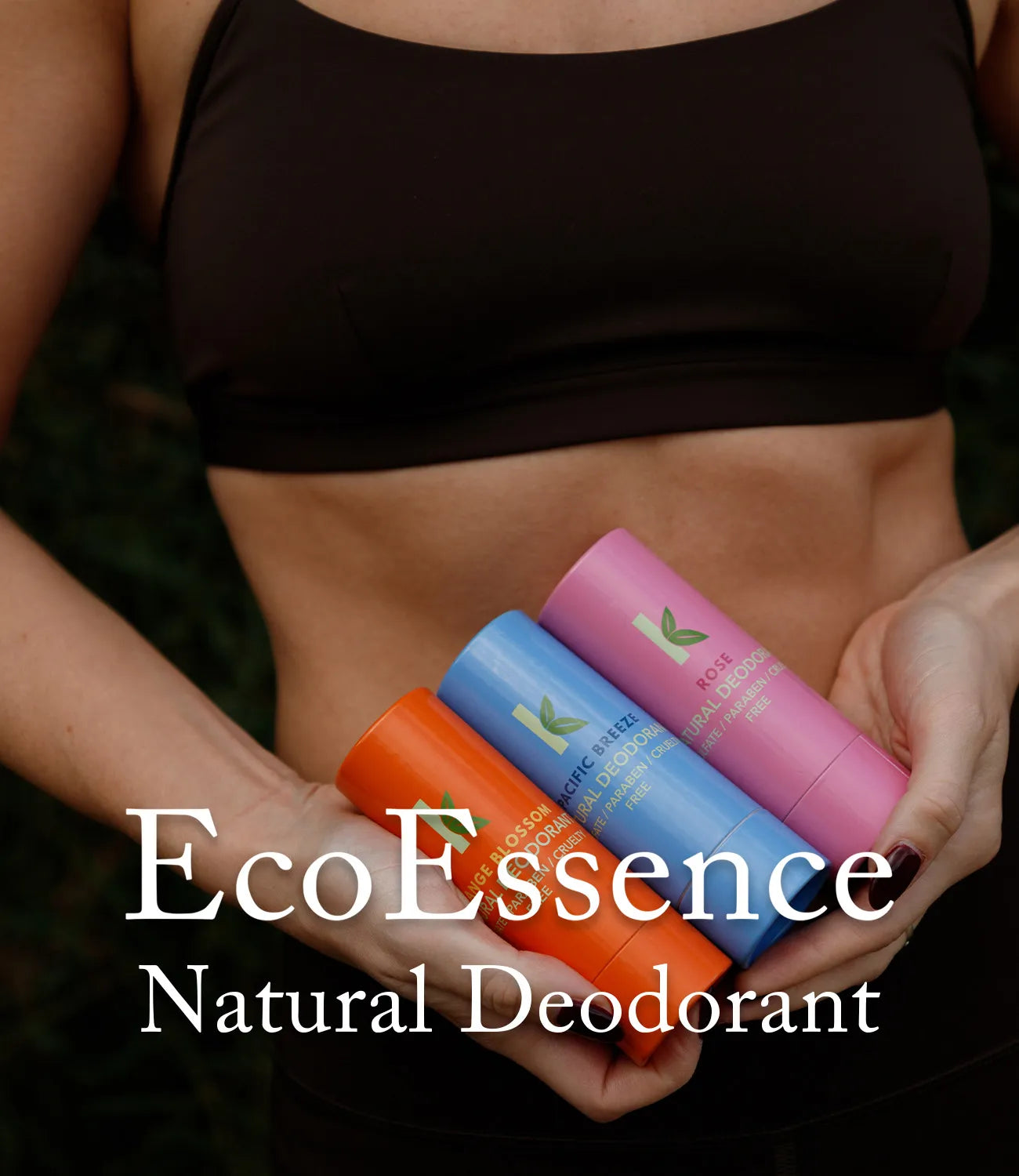Can You Be Allergic to Toilet Paper?
Toilet paper is an everyday essential that most of us don't think twice about—until it causes an issue. If you've ever experienced unexplained itching, redness, or irritation, your toilet paper might be to blame. Many conventional brands contain chemicals, fragrances, and dyes that can trigger allergic reactions or exacerbate sensitive skin. But don’t worry; you don’t have to suffer in silence. In this blog, we’ll explore the common allergens found in traditional toilet paper, the symptoms of potential allergies, and why switching to a more natural, hypoallergenic option like bamboo toilet paper could be the solution for your comfort and health. Plus, we'll dive into the environmental benefits of making the switch, so you can feel good about what you're using every day.
Common Allergens in Conventional Toilet Paper
While toilet paper might seem harmless, many conventional brands contain hidden ingredients that can be harsh on your skin. These additives are designed to enhance the product’s appearance, texture, or scent, but they can also lead to unwanted allergic reactions. Here are some common culprits:
Fragrances
Many toilet papers are infused with artificial fragrances to provide a pleasant scent. However, these synthetic perfumes often contain a mix of chemicals that can irritate sensitive skin, leading to itching, redness, or even more severe reactions.
Dyes
To achieve that bright white look or to add color, manufacturers often use dyes in toilet paper. These dyes, particularly those derived from synthetic sources, can cause skin irritation, especially in delicate areas. For those with sensitive skin or known dye allergies, this can be a significant trigger.
Chlorine
Chlorine is commonly used in the bleaching process to give toilet paper its pristine white appearance. Unfortunately, chlorine can leave behind trace amounts of harmful chemicals known as dioxins, which are not only potential skin irritants but also pose broader health concerns with prolonged exposure.
Formaldehyde
Surprisingly, formaldehyde, a chemical often associated with preservation, is sometimes used in toilet paper to enhance its wet strength. While it helps keep the paper intact when moist, formaldehyde is a known irritant and allergen that can cause contact dermatitis and other skin issues.
Other Chemical Additives
Conventional toilet paper may also contain other chemical additives, such as softening agents or preservatives, which can further contribute to skin sensitivity or allergic reactions.
By understanding these common allergens, you can make more informed choices about the products you use every day. Switching to a natural, chemical-free alternative like bamboo toilet paper could be a simple way to avoid these irritants and keep your skin healthy and comfortable.
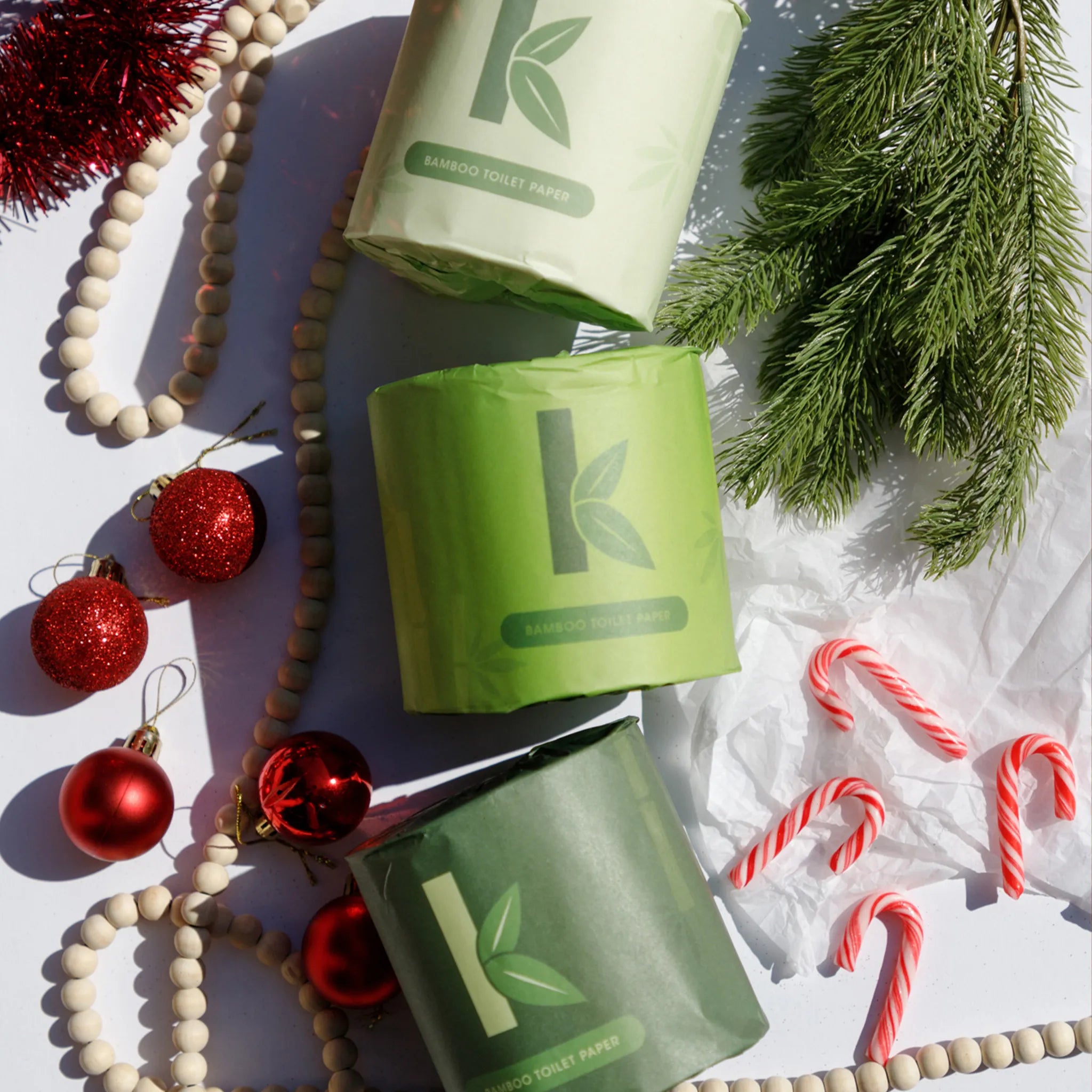

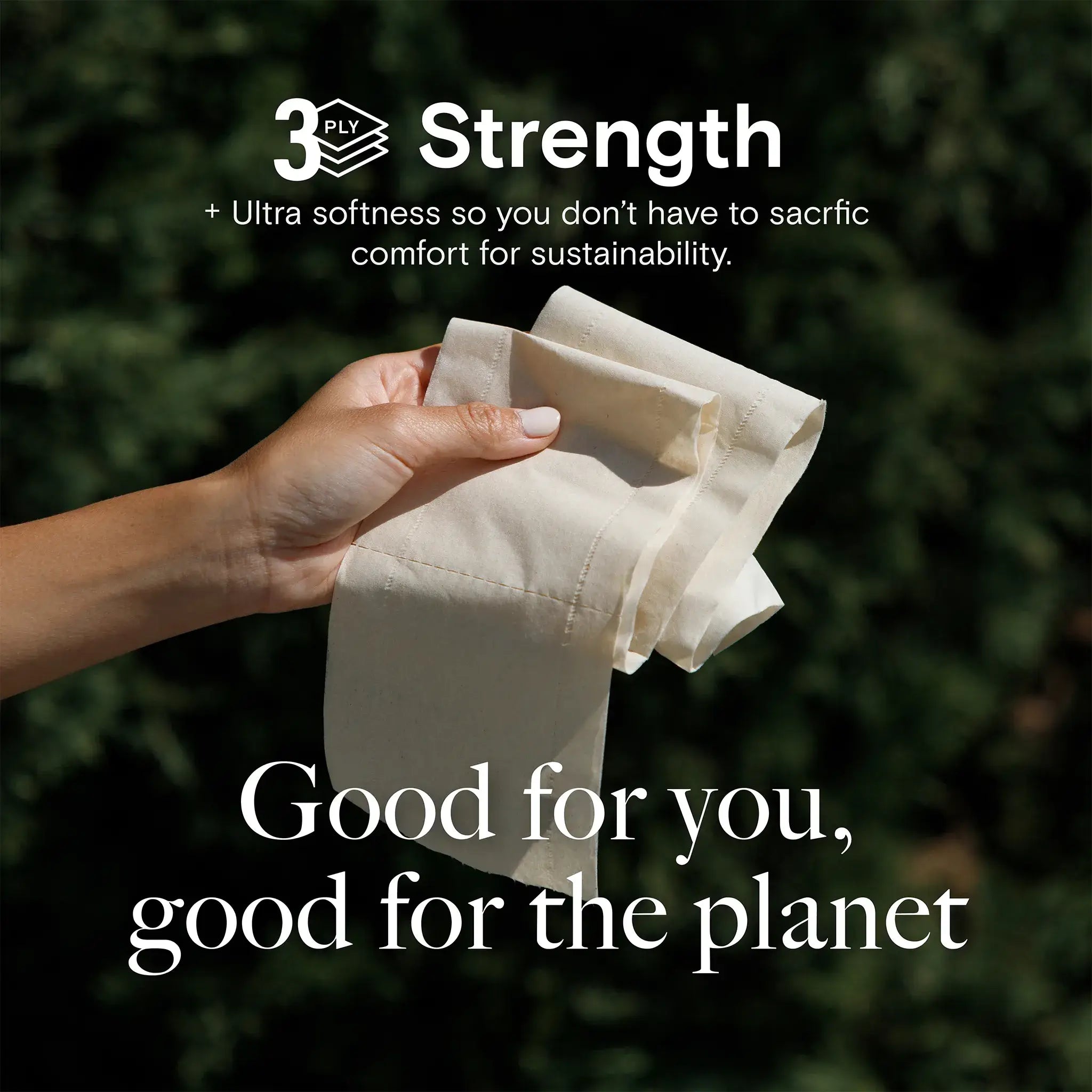
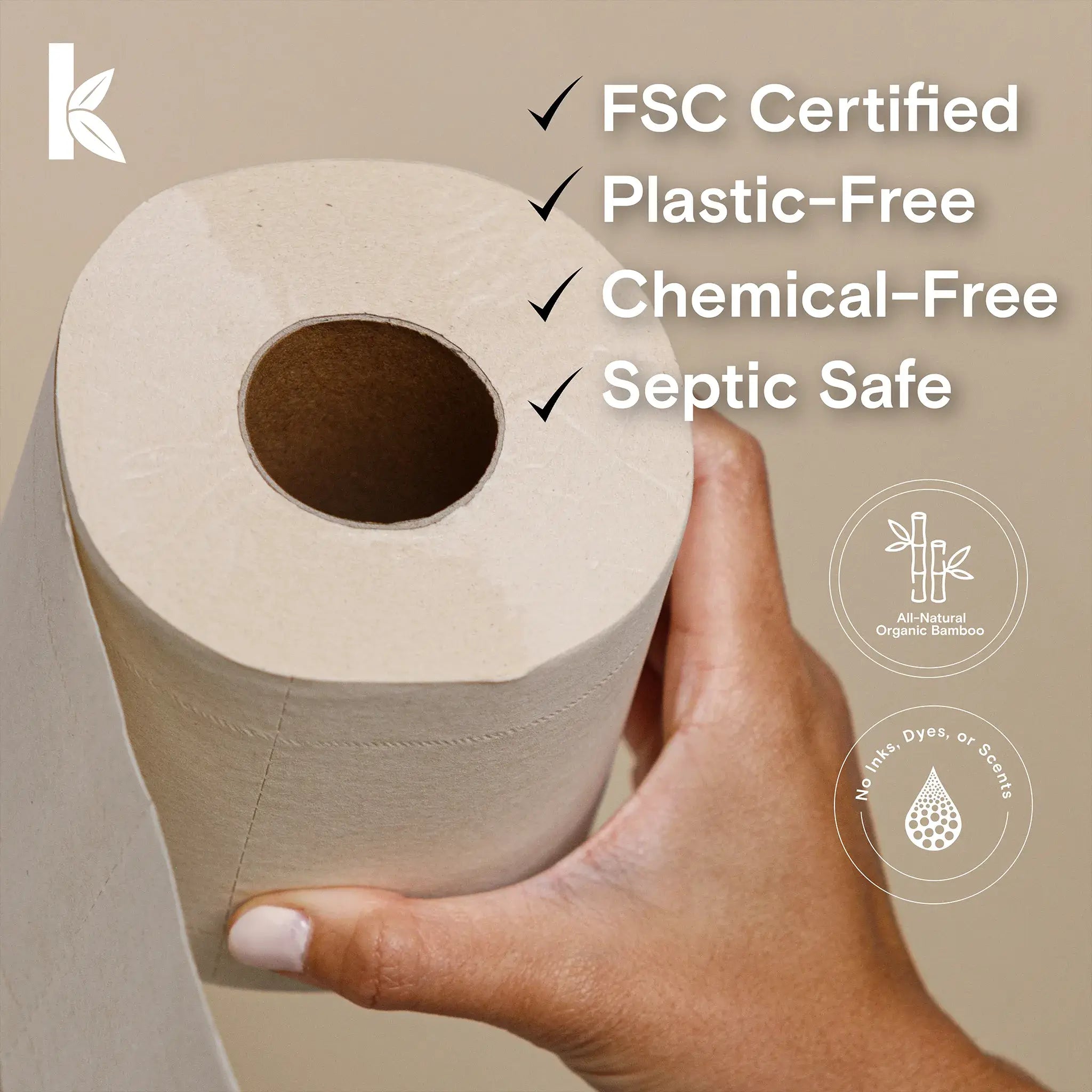


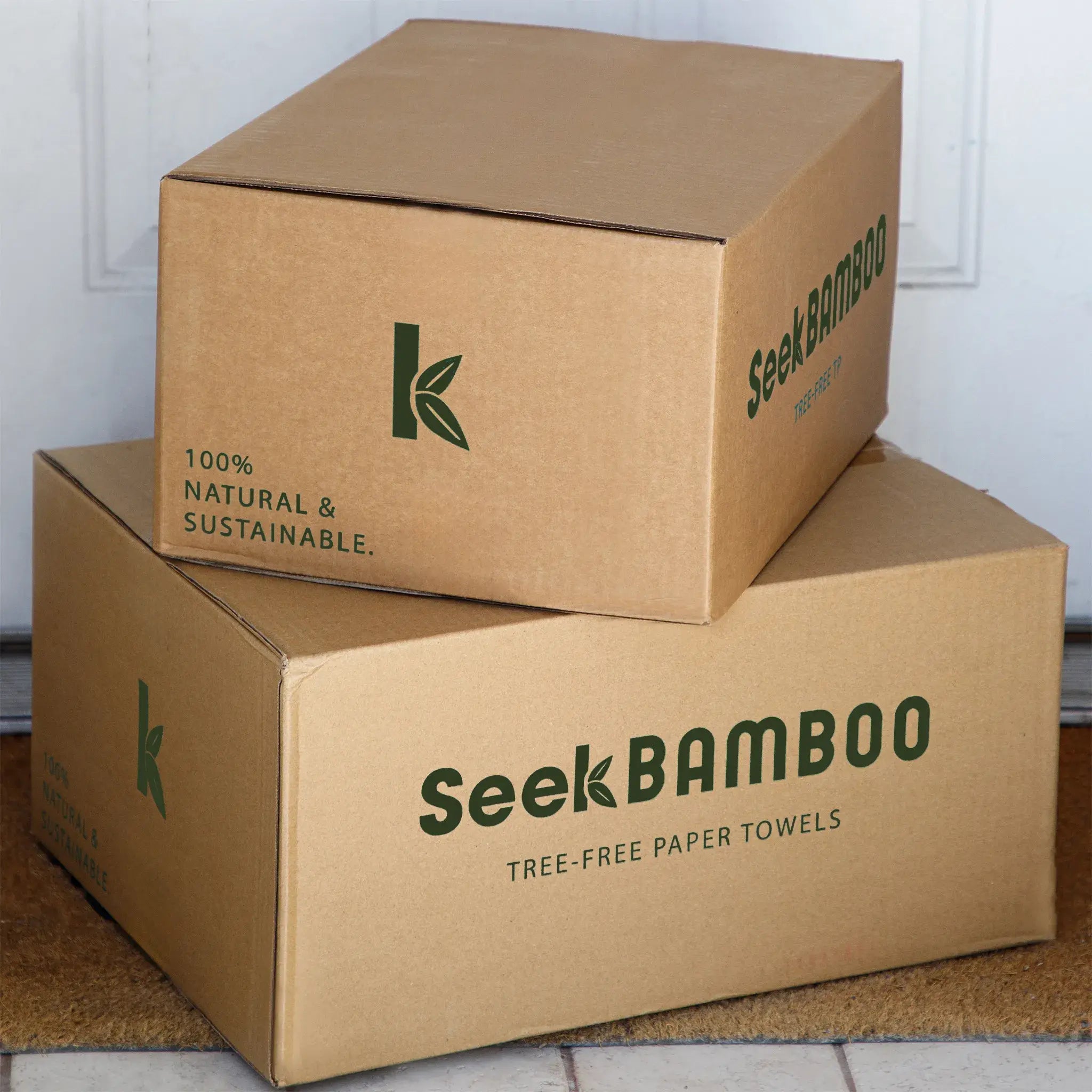
Symptoms of Toilet Paper Allergies
If you’ve ever noticed discomfort after using the bathroom, your toilet paper might be the unexpected culprit. Allergic reactions to toilet paper are more common than you might think, especially with products that contain harsh chemicals and additives. Here are some of the key symptoms to watch out for:
Itching
One of the most common signs of a toilet paper allergy is persistent itching in the areas where the paper comes into contact with your skin. This can range from mild discomfort to intense irritation that doesn't seem to go away.
Redness and Inflammation
Redness or swelling around sensitive areas could be a sign that your skin is reacting negatively to the ingredients in your toilet paper. This inflammation is your body's way of signaling that something isn't right.
Skin Irritation
Beyond itching and redness, you might also notice general irritation. This could manifest as a burning sensation or general discomfort, particularly after using the restroom. Such irritation can worsen over time, especially if the allergen continues to be used.
Dryness and Cracking
For some, an allergic reaction can lead to overly dry skin, which might crack or become flaky. This is particularly concerning in delicate areas, as it can lead to further irritation and potential infection if left untreated.
Contact Dermatitis
In more severe cases, exposure to allergens in toilet paper can lead to contact dermatitis. This condition involves a rash that can be itchy, swollen, or even blistered. Contact dermatitis can take time to heal and may require treatment with medicated creams or ointments.
Persistent Discomfort
If you find that you’re experiencing ongoing discomfort, particularly after using the bathroom, it could be a sign that your toilet paper is causing an allergic reaction. This persistent discomfort might not always be accompanied by visible symptoms, making it important to pay attention to how you feel.
If you’re noticing any of these symptoms, it might be time to reconsider your choice of toilet paper. Switching to a natural, hypoallergenic option like bamboo toilet paper can help alleviate these symptoms and provide a gentler alternative for your skin.
Why Bamboo Toilet Paper is a Better Option
If you’re experiencing discomfort from your current toilet paper, switching to bamboo toilet paper could be a game-changer for your skin and the planet. Bamboo toilet paper offers a hypoallergenic alternative to conventional products, thanks to its natural, chemical-free composition. Here’s why making the switch can benefit both your health and the environment.
Hypoallergenic and Gentle on Skin
Bamboo toilet paper is made without the harsh chemicals, dyes, and fragrances that are commonly found in traditional toilet paper. This means it’s much less likely to cause allergic reactions, making it an ideal choice for those with sensitive skin. The natural fibers in bamboo are soft and soothing, reducing the risk of irritation and discomfort, even with frequent use.
Naturally Antibacterial
Bamboo is naturally antibacterial and antifungal, which adds an extra layer of protection for your skin. Unlike conventional toilet papers that might harbor irritants, bamboo’s natural properties help keep your skin healthier and free from potential allergens.
Chemical-Free Composition
One of the biggest advantages of bamboo toilet paper is that it’s free from the chemical additives that are common in traditional brands. No chlorine, formaldehyde, or synthetic fragrances—just pure, natural bamboo. This ensures that your skin is exposed only to gentle, plant-based materials, which can significantly reduce the risk of allergic reactions.
Environmental Benefits
Beyond its benefits for your skin, bamboo toilet paper is also an eco-friendly choice. Bamboo grows quickly and requires fewer resources than traditional trees, making it a more sustainable option. It’s also biodegradable and compostable, breaking down naturally without leaving behind harmful chemicals. By choosing bamboo, you’re not only protecting your skin but also helping to reduce your environmental footprint.
A Renewable Resource
Bamboo is one of the fastest-growing plants on Earth, capable of reaching maturity in just a few years. Unlike trees, which can take decades to grow, bamboo can be harvested sustainably without depleting natural resources. This makes bamboo toilet paper a more sustainable option, reducing the need for deforestation and promoting a healthier planet.
Reduced Carbon Footprint
The production of bamboo toilet paper typically has a lower carbon footprint compared to traditional paper. Bamboo absorbs more carbon dioxide than trees, and its rapid growth means it can be harvested and regrown with minimal environmental impact. This contributes to a cleaner, greener planet while providing you with a high-quality, sustainable product.
Softness and Strength
Despite its eco-friendly credentials, bamboo toilet paper doesn’t compromise on quality. It’s soft yet strong, providing a comfortable experience without sacrificing durability. You get the best of both worlds—a product that’s gentle on your skin and tough on its environmental impact.
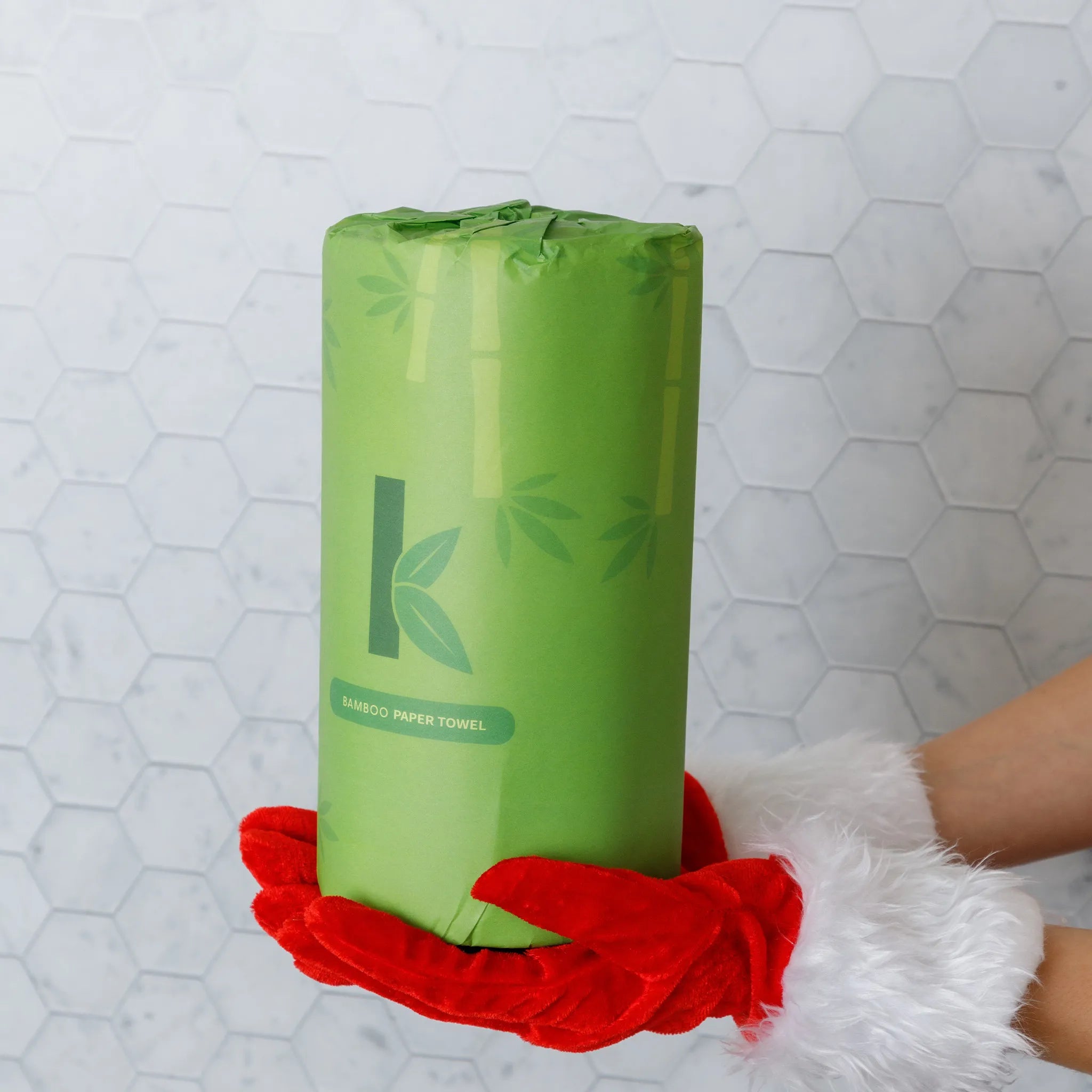
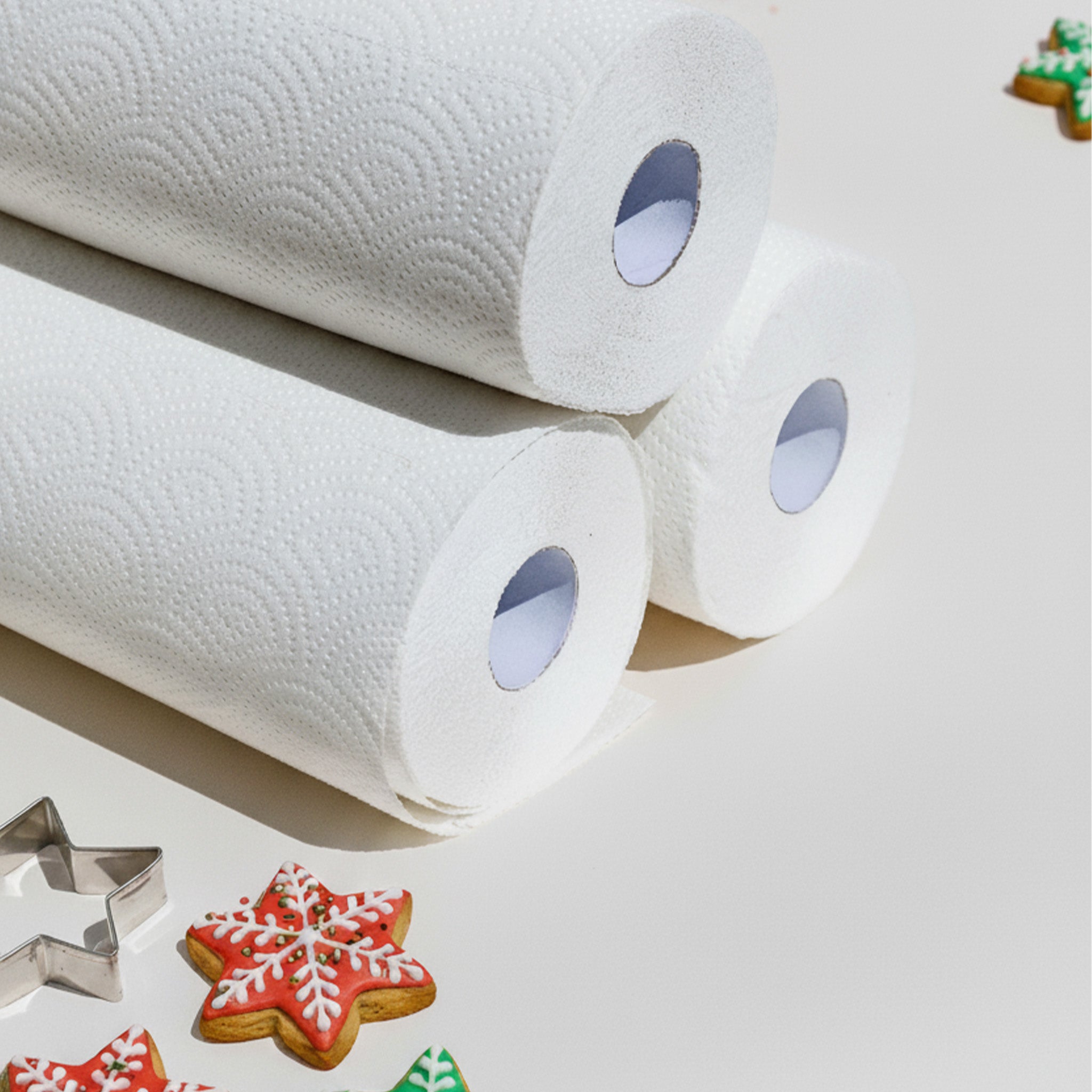
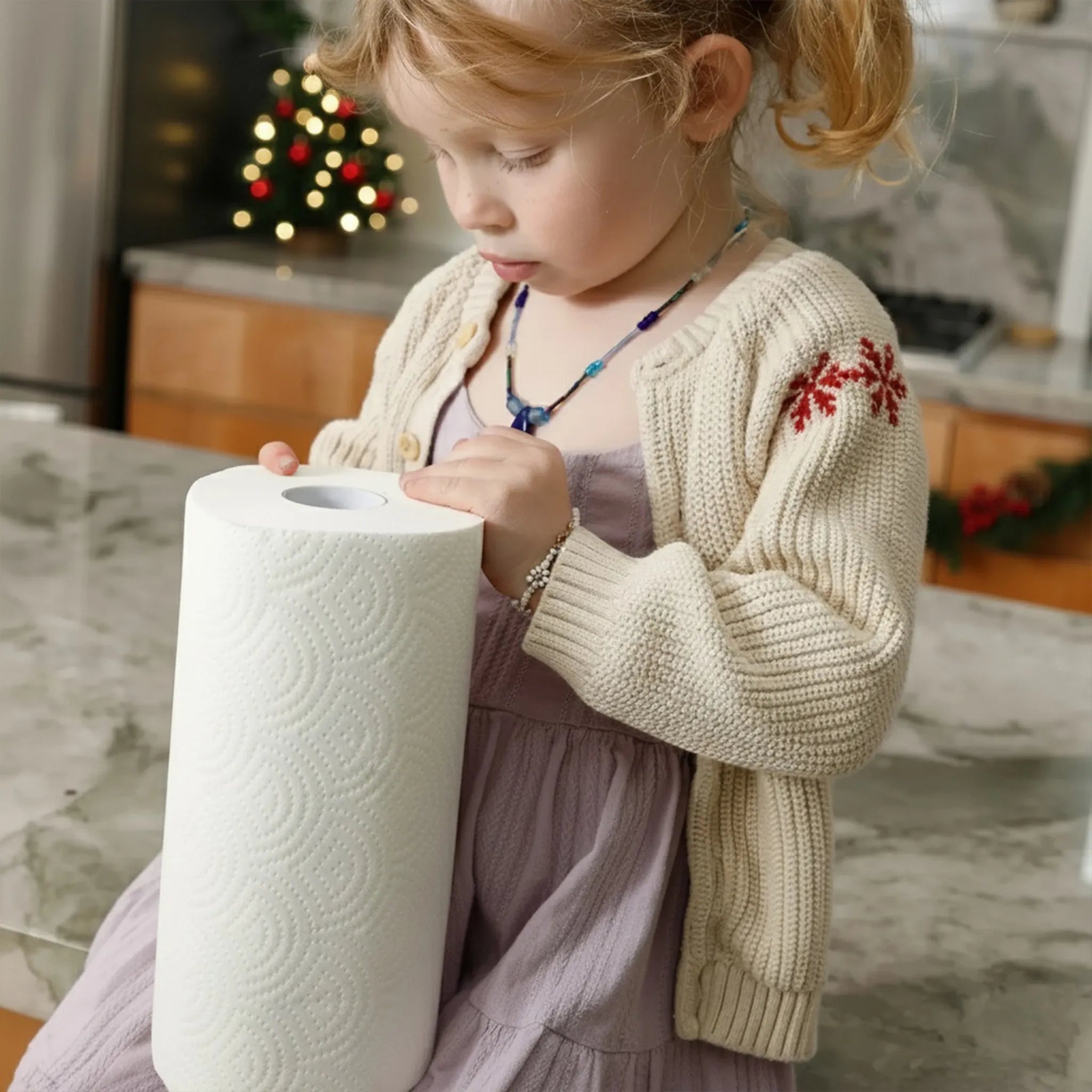

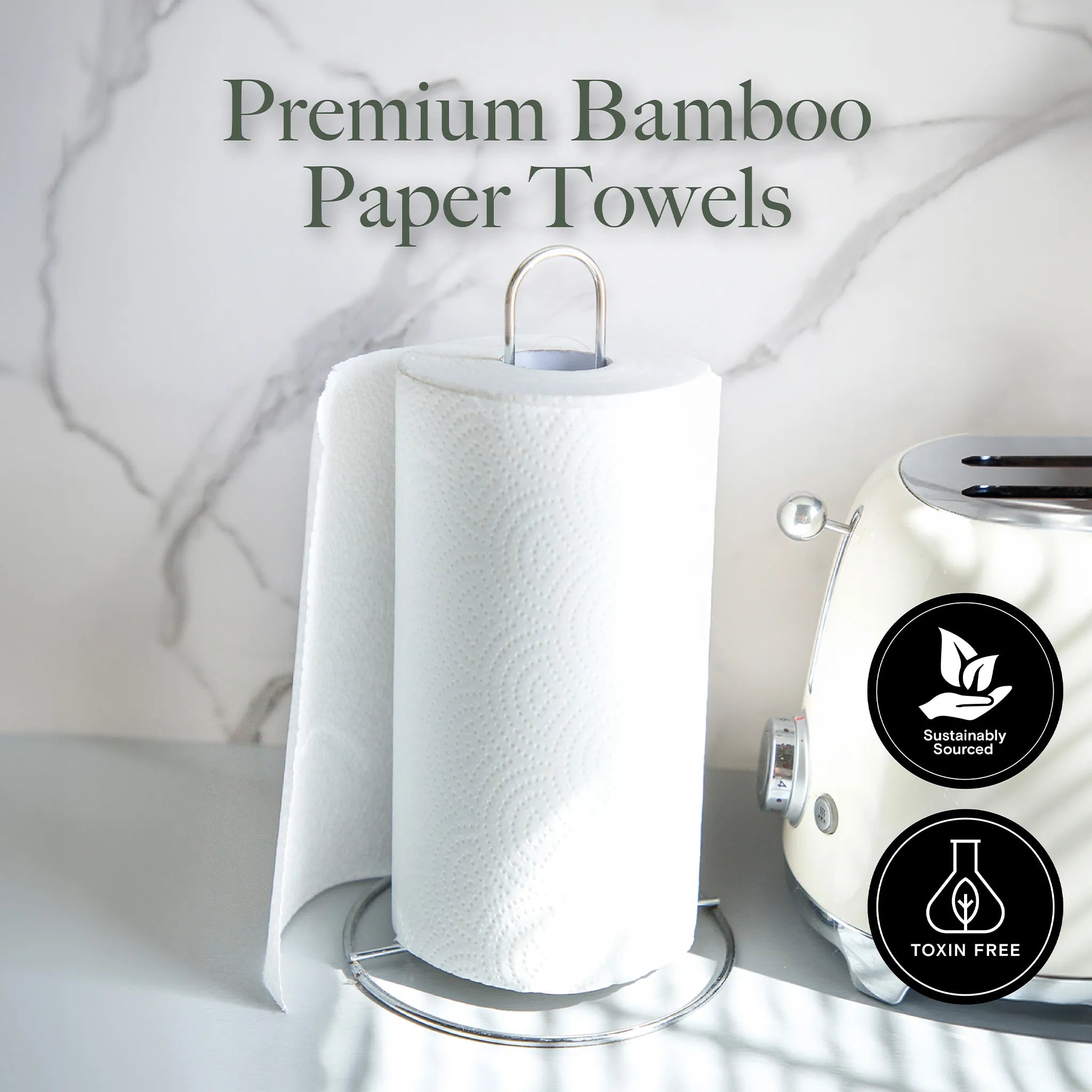
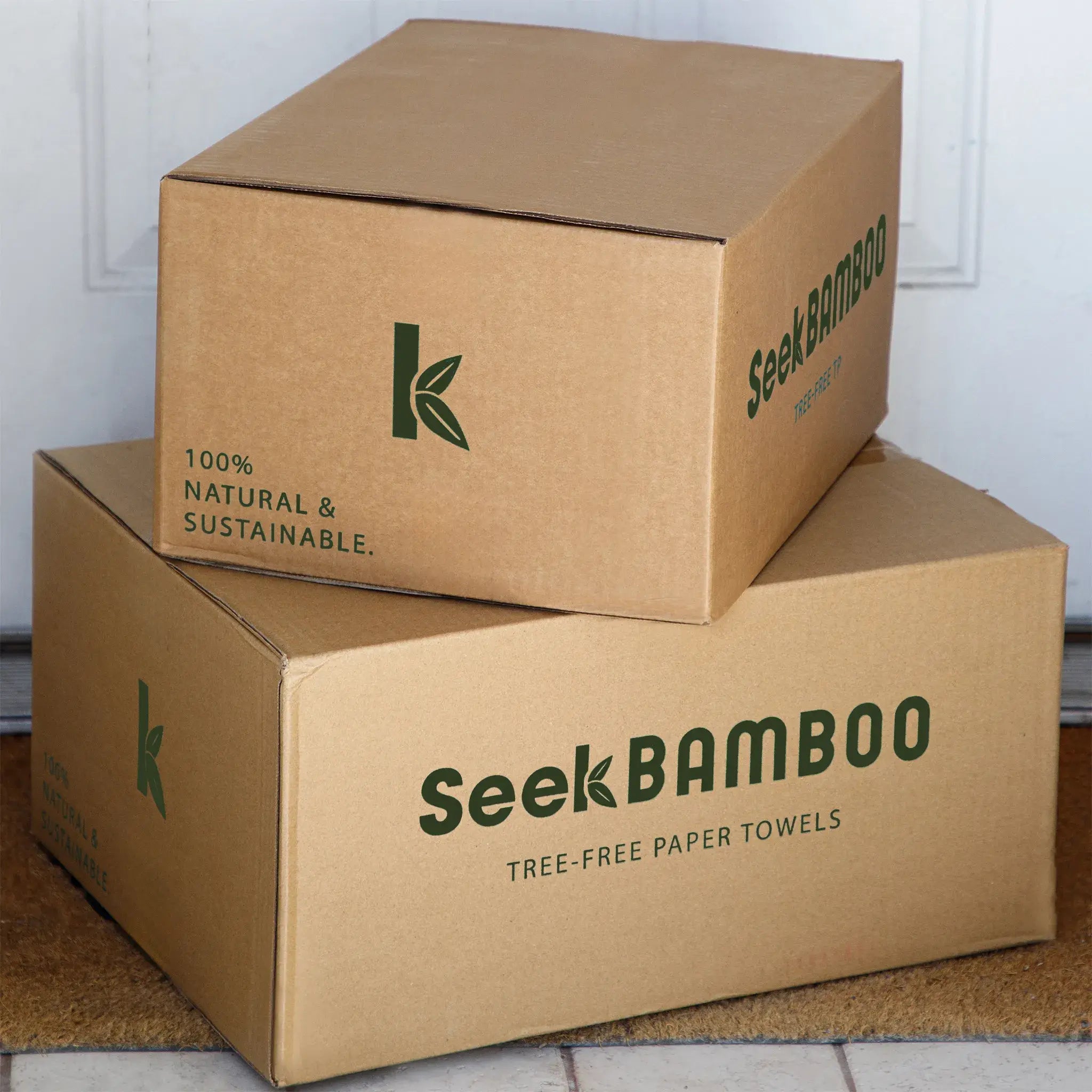

What to Do If You Suspect an Allergy
If you think your toilet paper might be causing an allergic reaction, it’s important to take action to protect your skin and overall health. Here’s a step-by-step guide on what to do if you suspect an allergy
Identify the Symptoms
Start by paying close attention to your body’s signals. If you’re experiencing itching, redness, irritation, or any other symptoms after using toilet paper, consider whether these issues are recurring and if they worsen with use.
Switch to a Hypoallergenic Option
One of the first steps you can take is to switch to a hypoallergenic toilet paper, like bamboo. Bamboo toilet paper is free from harsh chemicals, dyes, and fragrances, making it a gentler option for sensitive skin. This switch might provide immediate relief and prevent further irritation.
Monitor Your Skin’s Reaction
After making the switch to a more natural toilet paper, keep an eye on your symptoms. If you notice improvement, it’s likely that your previous toilet paper was the cause of your discomfort. Give your skin some time to heal by continuing to use hypoallergenic products.
Consult a Healthcare Provider
If your symptoms persist even after switching to a hypoallergenic option, it’s important to consult a healthcare provider. They can help diagnose the cause of your symptoms and may recommend treatments such as topical creams or antihistamines to manage the reaction.
Conduct a Patch Test
If advised by your healthcare provider, you might want to conduct a patch test to identify specific allergens. This test involves applying small amounts of potential allergens to your skin to see if a reaction occurs. Understanding the exact cause can help you avoid further exposure.
Review Other Products
Consider whether other products you use daily, such as soaps, laundry detergents, or skincare items, might also be contributing to your symptoms. Opting for natural, hypoallergenic alternatives across the board can help reduce the overall burden on your skin.
Maintain a Skin-Friendly Routine
In addition to using hypoallergenic toilet paper, maintain a skincare routine that soothes and protects sensitive areas. Using gentle, moisturizing products can help repair any damage caused by the allergic reaction and prevent future issues.
Stay Informed and Proactive
Allergies can develop over time, so it’s important to stay informed about the products you use. Regularly review ingredient lists and stay proactive about choosing natural, chemical-free options like bamboo toilet paper to minimize your risk of allergies.
Choose Comfort and Sustainability with Bamboo Toilet Paper
Dealing with skin irritation and allergies can be frustrating, especially when the cause is something as essential as toilet paper. Conventional toilet paper often contains harsh chemicals, fragrances, and dyes that can trigger uncomfortable allergic reactions. But the good news is that you don’t have to put up with these irritants.
By switching to bamboo toilet paper, you can enjoy a hypoallergenic, chemical-free alternative that’s gentle on your skin and kind to the environment. Bamboo’s natural properties make it an ideal choice for those with sensitive skin, helping to reduce the risk of irritation while providing a soft, strong, and sustainable solution.
If you suspect that your toilet paper might be causing an allergic reaction, taking the steps to switch to a hypoallergenic option like bamboo could provide the relief you’re looking for. Not only will you be protecting your skin, but you’ll also be making a positive impact on the planet by choosing a product that’s renewable, biodegradable, and eco-friendly.
In the end, comfort and sustainability don’t have to be mutually exclusive. With bamboo toilet paper, you can have the best of both worlds—a product that supports your health and aligns with your values. So, take the first step toward a healthier, more comfortable bathroom routine and make the switch to bamboo today.
Can You Be Allergic to Toilet Paper?
Common Concerns and Solutions for Sensitive Skin
Can you really be allergic to toilet paper?
Yes, it is possible to be allergic to toilet paper, especially if it contains harsh chemicals, fragrances, or dyes. These additives can cause skin irritation, itching, redness, and even more severe reactions like contact dermatitis. If you notice any discomfort after using toilet paper, it might be a sign of an allergy.
What ingredients in toilet paper typically cause allergies?
Common allergens in conventional toilet paper include synthetic fragrances, dyes, chlorine, and formaldehyde. These ingredients are often used to enhance the appearance, scent, or durability of the paper, but they can also be harsh on sensitive skin and trigger allergic reactions.
How can I tell if my toilet paper is causing an allergic reaction?
If you experience symptoms like itching, redness, swelling, or irritation after using toilet paper, it could be an indication of an allergic reaction. Persistent discomfort in sensitive areas is also a sign that your skin may be reacting negatively to certain ingredients in the toilet paper.
What should I do if I suspect I’m allergic to my toilet paper?
If you suspect that your toilet paper is causing an allergic reaction, the first step is to switch to a hypoallergenic option, such as bamboo toilet paper. Bamboo toilet paper is free from harsh chemicals and additives, making it a gentler choice for sensitive skin. If symptoms persist, it’s important to consult a healthcare provider for further advice and treatment.
Why is bamboo toilet paper a better option for those with allergies?
Bamboo toilet paper is naturally hypoallergenic and free from the chemicals, dyes, and fragrances that are common in conventional products. Its soft, natural fibers are gentle on the skin, reducing the risk of irritation and allergic reactions. Additionally, bamboo is an eco-friendly and sustainable material, making it a great choice for both your health and the environment.
Is bamboo toilet paper environmentally friendly?
Yes, bamboo toilet paper is an environmentally friendly option. Bamboo is a fast-growing, renewable resource that requires fewer resources to produce than traditional wood-based paper. It’s also biodegradable and compostable, making it a sustainable choice that minimizes your environmental footprint.
How can I soothe my skin if I’ve had an allergic reaction to toilet paper?
If you’ve had an allergic reaction, it’s important to switch to a hypoallergenic toilet paper like bamboo to prevent further irritation. Additionally, using gentle, fragrance-free moisturizers or soothing ointments can help heal irritated skin. If the reaction is severe, consult a healthcare provider for appropriate treatment.
What other products should I consider switching if I have sensitive skin?
If you have sensitive skin, it’s a good idea to switch to hypoallergenic options for other products as well, such as soaps, laundry detergents, and skincare items. Opting for natural, chemical-free alternatives can help reduce the overall burden on your skin and prevent allergic reactions.
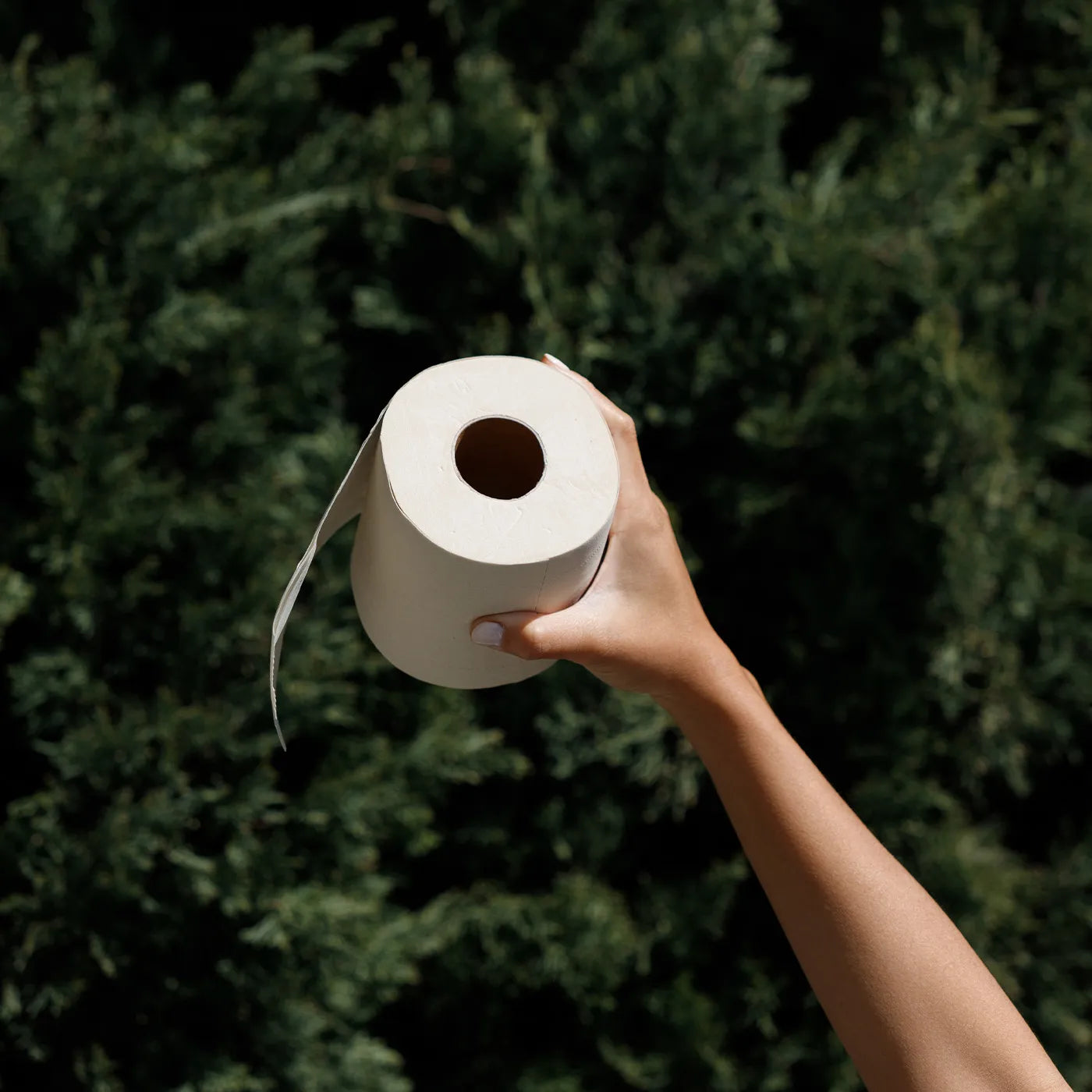
Pros And Cons Of Bamboo Toilet Paper
Bamboo Toilet Paper: Unveiling Its Major Benefits. Discover Why It’s the Best Choice
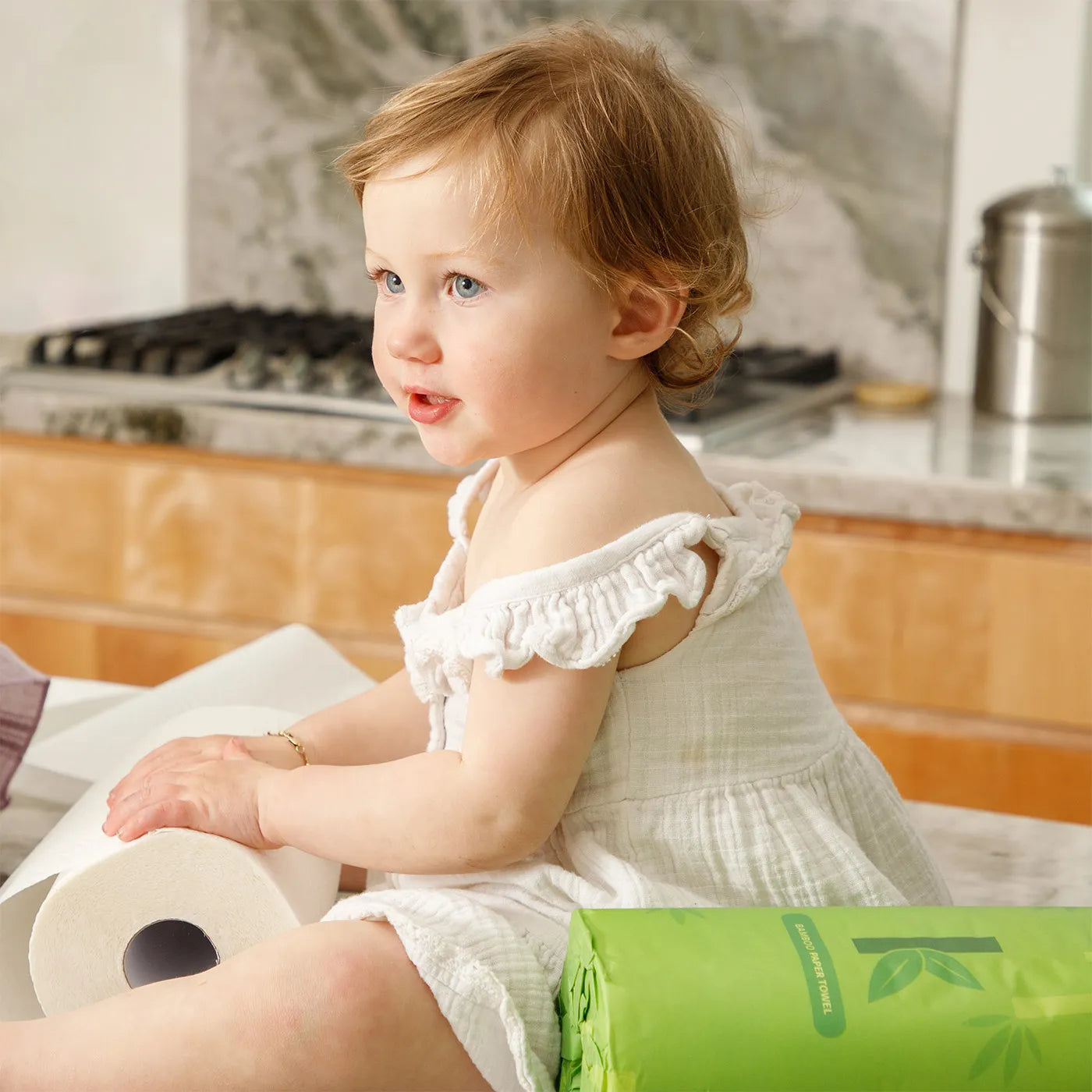
Learn More About Non-Toxic Paper Towels
Discover the benefits and safety of non-toxic paper towels, ensuring a healthier, chemical-free cleaning experience.


